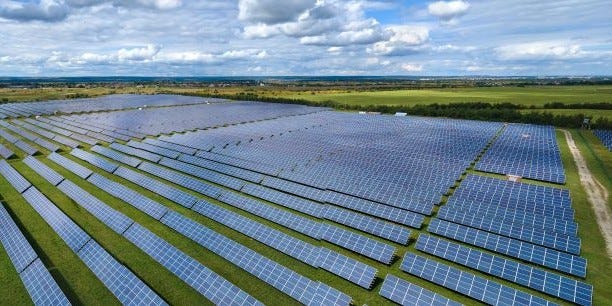Local decision makers have history of supporting property rights, but question land usage for solar
Ada County has the potential to unlock economic growth through solar energy development, but a proposed zoning ordinance discouraging solar development on farmland would effectively prevent landowners from leasing their land for solar use.
The debate currently embroiling Ada County is between local supporters of solar energy development and county decisionmakers.
Landowners and neighbors say the zoning ordinance is a threat not only to the county’s long-term economic and energy stability, but also to cherished private property rights.
The Board of County Commissioners (BOCC) recently held a public hearing on a proposed solar ordinance from the Zoning and Planning Commission that would strongly discourage solar development on farmland.
The ordinance’s language would give the county the power to determine whether that farmland is “farmland of statewide importance” and “farmland of local importance,” designations that could potentially allow the BOCC to ban solar development anywhere in the area.
Across the country, private landowners looking to lease their land for solar energy projects are facing pushback from local leaders. Many of these decision makers claim to be proponents of private property rights, but are increasingly implementing double standards when it comes to allowing solar projects.
Bodies such as county commissions and councils routinely reject permits for solar projects on private land and more than 100 rural U.S. counties over the past several years have introduced ordinances that discourage, restrict, or even ban solar development altogether.
While some residents have expressed concerns about losing farmland to overdevelopment, it’s important to note that solar projects are not the cause of this phenomenon.
Per USDA Farm Census date, between 1992 and 2022 Ada County lost 52 percent of its cropland acres, due almost entirely to housing, commercial, and industrial uses.
Ada County currently has two solar installations, and, in contrast to other forms of land development, not only do these produce needed power, stabilize the local grid, bring in tax revenues, and provide farmers with a means of supplementing their income, but once a solar project is decommissioned, the land can be restored to cropland for future agricultural production.
A number of local landowners have warned about the potentially devastating impacts of stricter energy development regulations on the health of both the land and the local economy.
Testifying at the BOCC hearing, Ada County landowner Nicole Stearns said that solar development “most certainly does not strip our land of its value; if anything it preserves it, allowing families like mine to diversify our income, contribute to Idaho’s energy independence and to keep our lands in local hands...
“The proposed [solar] zoning ordinance before you [BOCC] would amount to an outright prohibition on utility scale solar development across most of Ada County. If enacted, this would not only erase a realistic path for projects that I hoped to host on my land, but it would also erode the very property rights that have always defined Idaho’s character.”
Stearns’ concerns were echoed by fellow Idaho landowner Kelley Dixon as well as David Garman, former Assistant Secretary of Energy Efficiency and Renewable Energy at the U.S. Department of Energy, who emphasized that “Not only does [the proposed ordinance] drive a stake in the heart of private property rights, but it also effectively prohibits the cheapest new energy capacity that markets have deemed to be the best choice today.”
Others at the hearing suggested that the ordinance’s language also presents a double standard, noting that Ada County has approved a wide variety of other development projects on private farmland, including a gravel pit, a gas station and Circle K convenience store, an RV-storage facility, a retail and entertainment district, and a housing development that will span 1,000 acres of former farmland.
Critics of the ordinance see this as further evidence that county officials are singularly targeting and restricting landowners who seek to lease their land to solar developers while placing relatively few restrictions on landowners who wish to sell to housing or commercial developers.
After hearing from landowners desperate to protect their private property rights, the Ada County commissioners, including Chairman Rod Beck (District 2), and Commissioners Ryan Davidson (District1), and Tom Dayley (District 3) will continue to consider this ordinance and whether to keep or change the language discouraging solar development on farmland. Their decision will impact landowners across Ada County.




